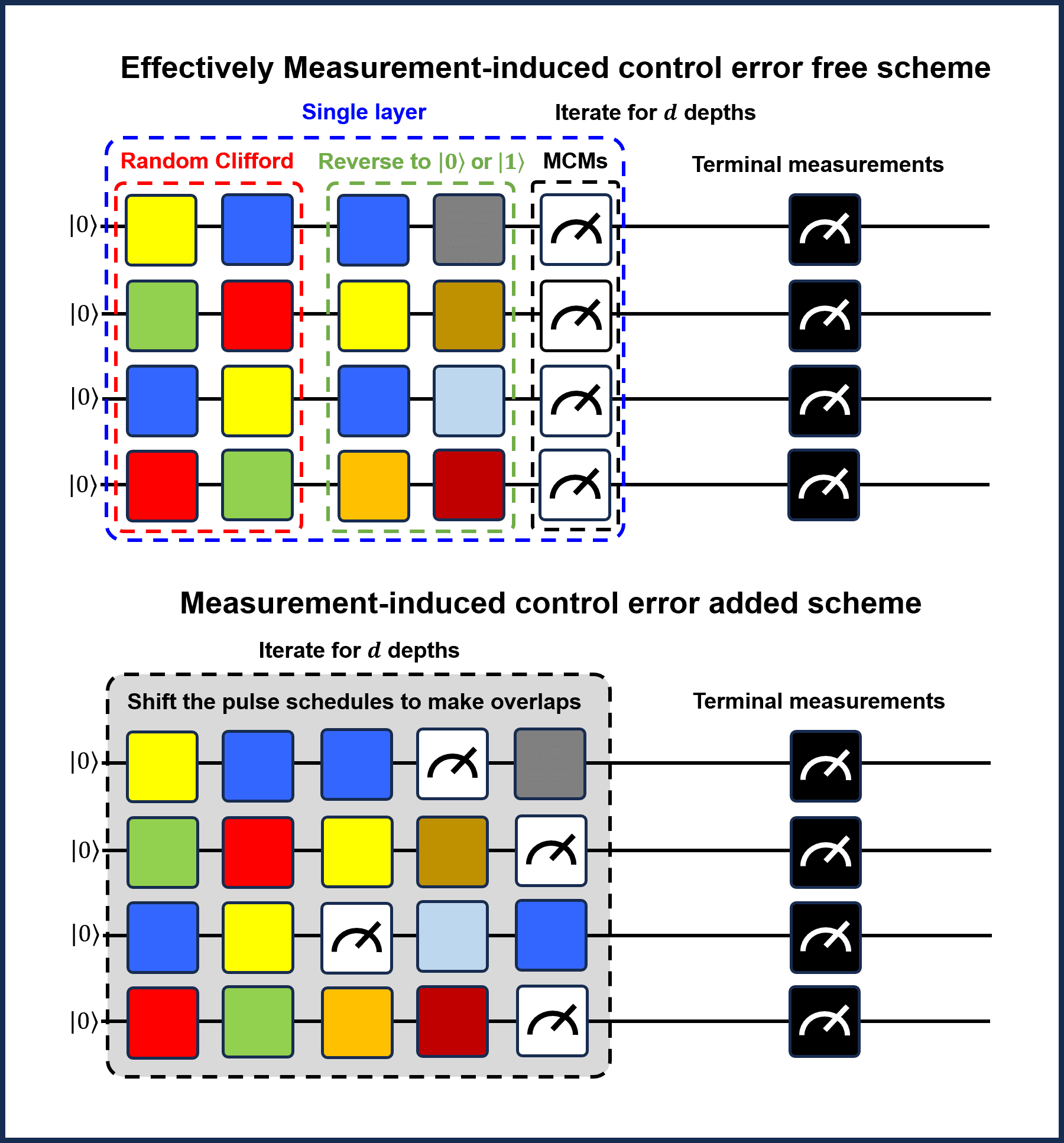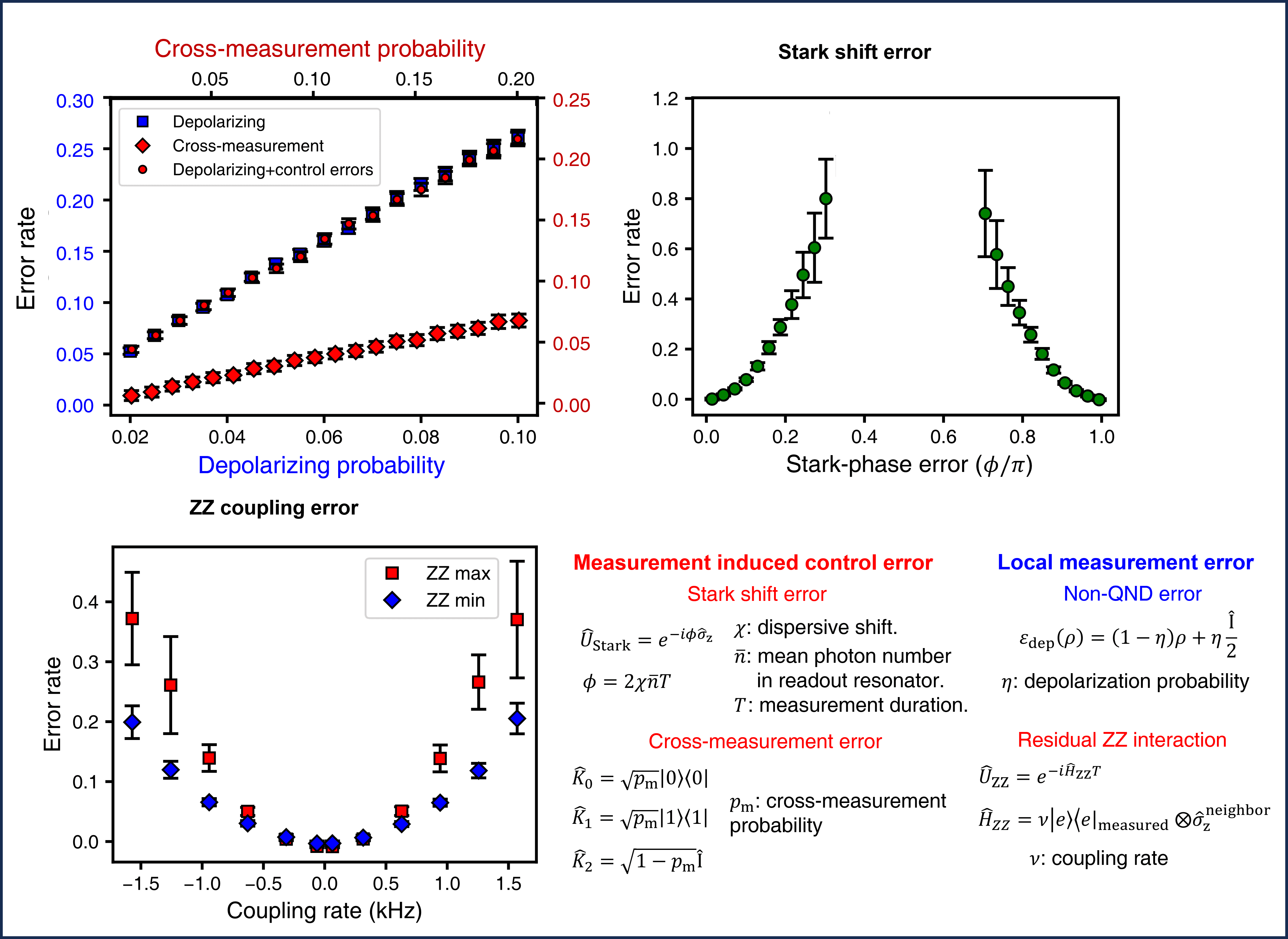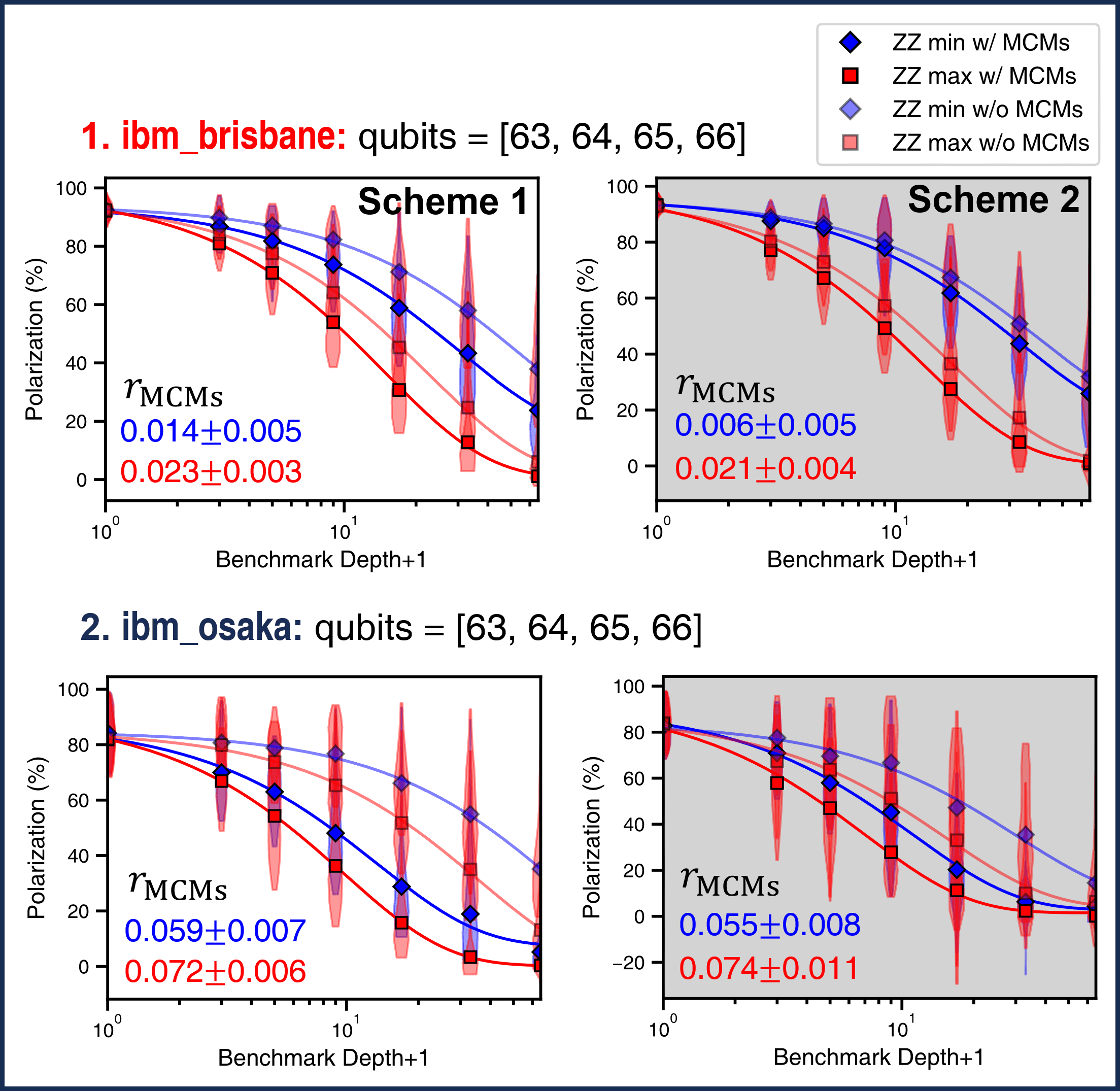Benchmarking Mid-circuit Measurements Oct. 2023 – Present
Scalable Benchmarking Protocol for Mid-circuit Measurements
⌜Built a randomized benchmarking (RB) based protocol to characterize and measure the diverse errors of mid-circuit
measurements using pyGSTi and Qiskit.
Simulated the protocol with physical errors such as relaxation errors, depolarizing errors, crosstalks, and stark shift
errors and showed the capability of the protocol both in measuring the error rates and the types of erros of mid-circuit
measurements and tested on superconducting qubits system using IBM’s real backend.⌟
Mid-circuit measurements are one of the core building blocks for fault-tolerant quantum computing, serving as a key primitive in error correction. With steady progress in scaling the quantum processors, realizing logical qubits is becoming feasible, consequently, the significance of accurate and reliable operation of mid-circuit measurements is also becoming increasingly critical. However, due to the inherent nature of the measurement occurring in the middle of the quantum circuit, it is subject to non-local errors on spectator qubits, unlike terminating measurements that occur at the end of the circuit. Though several techniques have been developed for benchmarking and characterizing mid-circuit measurements, to date reliable, scalable, and efficient protocols capable of capturing the holistic errors of mid-circuit measurements have yet to emerge.
Here, we have developed a scalable and efficient benchmarking protocol for mid-circuit measurements based on randomized benchmarking theory along with the consideration of circuit scheduling. We demonstrate that our protocol can quantify and distinguish local measurement errors and measurement-induced errors on unmeasured qubits using a density matrix simulator and superconducting qubits. In particular, we show that the noise levels of the ZZ-interaction can be tuned and the difference in error rates between high and low ZZ-interaction levels can be quantified.


